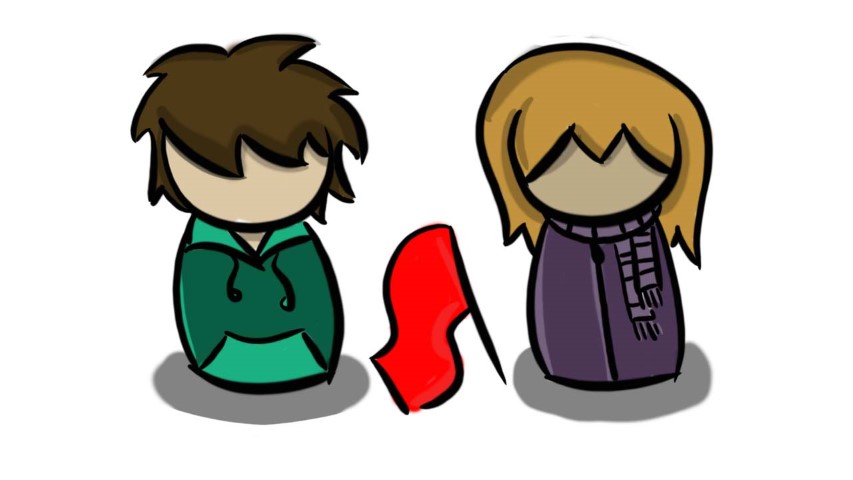
Know the red flags in a relationship
By EG Manilag, Staff Writer
Deep wounds may heal, but the scars remain. It’s been eight years now since the death of Maple Batalia, yet her story is still unfortunately relevant as ever. Her death was a result of intimate partner violence, also known as domestic violence. It is very sad, and no one should ever go through such pain. This needs to end. Whenever one sees someone (be it a stranger or a friend) being abused by their partner, they should not be afraid to get help. Speak up—because you, as an individual, can make a huge difference. Additionally, to those who feel like their partner is getting abusive, don’t stay, get out and seek help. Violence is a serious matter—it can spread like wildfire if not stopped. Of course, not all abusive relationships look the same, but here are some common (but not necessary) red flags of a harmful relationship to be on the lookout for:
Being physically, verbally, and mentally abusive
I attended a presentation on “Violence in Relationships” last Wednesday at the Coquitlam RCMP. I witnessed Maple Batalia’s three closest friends explaining how abusive Maple’s ex-boyfriend/killer was. He would call her names, accuse her of cheating, control her, punch her, and even intimidate her by threatening to attempt suicide.
Stalking
Stalking, also known as criminal harassment, is a crime. According to a document called “Stalking is a crime called criminal harassment” released by the Department of Justice of Canada, the main motivation for stalking another person is the desire to control, particularly in cases where the subject is a former partner. This is true in Maple’s case. Her ex-boyfriend would stalk her and constantly text her, which is cyberstalking. He would refuse to recognize that their relationship was over, and his prevailing attitude was the all too common, “if I can’t have her then no one else can.”
Jealousy
Is it normal? Well, pretty much—to a certain extent. For Maple though, she experienced an extreme form of jealousy that was corrosive. During the presentation, Maple’s friends talked about how jealous her ex-boyfriend was when it came to other people talking to her. One time, he beat up Maple’s co-worker because he believed that the guy was hitting on her, forcing the co-worker to transfer in fear of getting beat up again. He also tended to get jealous of her success and would constantly tell her that she wasn’t good enough.
This is a severe case, so a reminder that jealousy is normal is important. As long as the emotion is dealt with through peaceful, rational, and healthy means. Constant and extreme jealousy, like what Maple suffered, is not normal. Not only is it harmful to you and your partner, but it also builds distrust in a relationship.
Who can help?
For those who need help or are considering helping, know that anyone can help. Strangers, friends, and family. Help can also be found at the Victim Services & Violence Against Women Program Directory, which “provides contact information for service providers across British Columbia that assist victims of crime and women and children impacted by violence,” according to their website. Additionally, VictimLink, a 24-hour, 7 days a week support line can provide help, their website states that it “ provides information and referral services to all victims of crime and immediate crisis support to victims of family and sexual violence.”

